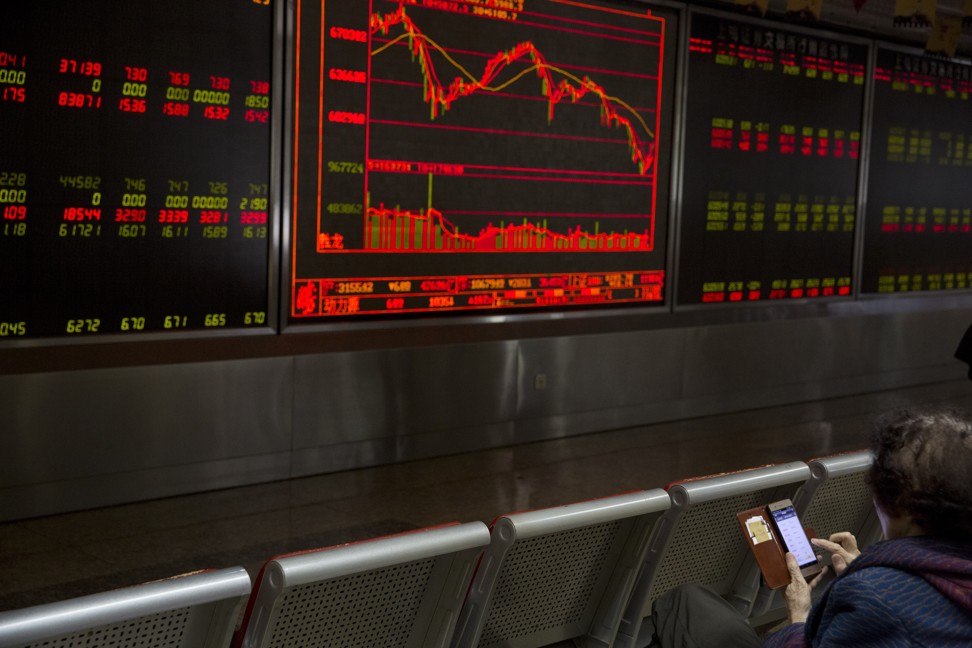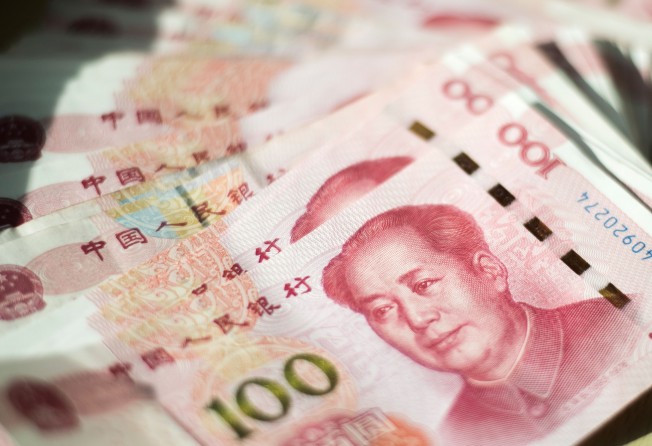
China’s private firms default on US$2 billion bond repayments as Beijing’s deleveraging efforts bite
A shortage of bank funding and an increasingly competitive business environment has left companies fighting to survive, analysts say

China’s private sector firms are facing a debt crisis amid falling profits and rising financing costs, with the value of bond defaults in the sector rising by more than a third in the first four months of the year, according to industry watchers.
More than 10 companies, several of them listed, from a variety of industries have defaulted on 15 bonds worth more than 12.8 billion yuan (US$2 billion), according to figures from China Central Depository and Clearing Company, which manages and promotes the sector.
The spike in defaults has unsettled regulators that have been keen to prevent systemic risks as they seek to reduce national debt levels.
“No matter what industry they are in, what these companies have in common is that they are finding it much harder than state-owned enterprises to get financing,” Qin Han, chief fixed income analyst at Guotai Junan Securities, wrote in a note.
“Deteriorating business could lead banks to withdraw loans and cause a cash shortage. Eventually, it will lead to more defaults. State-owned enterprises [in contrast] can rely on other sources of borrowing to sustain them, even if their businesses are feeling the strain,” he said.
Earlier this month, Hangzhou Bank in Hefei, capital of southeastern China’s Anhui province, temporarily withdrew a loan of 210 million yuan to a listed subsidiary of manufacturing conglomerate DunAn Group, after media reports about the parent company’s debt problems sparked alarm in the market.
DunAn, which is headquartered in Hangzhou, capital of eastern China’s Zhejiang province, and employs about 29,000 people, had earlier appealed to the provincial governor for a bailout, after revealing it was 45 billion yuan in debt and was facing a liquidity crisis.
Although financial regulators summoned the company’s creditors for an emergency meeting on May 2, Hangzhou Bank withdrew the loan the following day without notifying the subsidiary.
It did, however, reinstate the funding, after the local government helped to broker an agreement.
The latest company to default on a bond is Kaidi Ecological and Environmental Technology based in Wuhan, capital of central China’s Hubei province. On May 7, the Shenzhen-listed company, which is involved in the generation of electricity from biomass, failed to repay 698 million yuan due in principal and interest payments on a medium-term bond.
Ratings company China Chengxin subsequently downgraded Kaidi’s credit profile by six notches from AA to C.
“Kaidi’s default is a typical case of risk exposure from private companies in new industries,” Guo Buchao, a fixed income analyst from China International Capital Corporation, wrote in a note.
“Policy uncertainty and a change in the financing environment reinforced each other to deliver a corporate liquidity crisis”, he said.
Kaidi’s profit is highly dependent on government subsidies, partly because generating electricity from straw is more expensive than burning fossil fuels or using hydropower.
The company’s inability to create enough revenue or secure enough financing to match its investment spending meant the default was inevitable, analysts said.
Another company that has struggled to meet its debt obligations is Fuguiniao, one of China’s largest shoemakers and menswear manufacturers.
The Fujian-based firm, which is listed on the Hong Kong stock market, has already this year missed two bond repayments as a result of its balance sheet being stretched too thin following an aggressive expansion into financial services.
According to publicly available figures, Fuguiniao has recorded a double-digit net loss for each of the past three years, and as of the end of last month was 2.6 billion yuan – 2.1 billion yuan in bonds and 512 million yuan worth of bank loans – in debt.
With China’s financial regulators committed to a programme of deleveraging, further bond defaults seem inevitable.
At an internal meeting held earlier this month, Beijing’s securities regulator called for the establishment of “a line of defence” against credit risks, given the increase in defaults so far this year and the upcoming spike in the number of bonds set to mature between now and 2020.
“Although the capital market is stable for now, the economic slowdown won’t ease any time soon as it’s in the middle of restructuring,” the regulator was cited as saying in minutes of the meeting, which were published on Thursday on the China Securities Regulatory Commission’s website.
As of the end of March, 18 per cent of China’s outstanding corporate bonds – worth about 1.36 trillion yuan – were attributable to companies in the nation’s capital.
Larry Hu, chief China economist at Macquarie Group, said policymakers were adamant about removing the “implicit guarantees” [that bondholders would get their money back no matter what, hence negating any risk] that had become entrenched in the country’s financial system and driven debt bubbles in the past.
“The government is moving in a direction that allows more corporate bonds to default … so as to remove the implicit guarantee, which has been a feature of China’s financial system,” he said.
“I see the determination of China’s policymakers to correct that.”
China reported its first bond default as recently as 2014. Last year, there were 44 worth 38.4 billion yuan, down slightly from 39.8 billion yuan in 2016 but more than three times the value in 2015, according to figures from China Central Depository and Clearing Company.